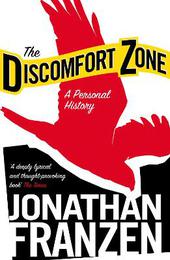
|
The Discomfort Zone: A Personal History
Paperback / softback
Main Details
Description
A brilliant personal history from the award-winning author of 'The Corrections'. Jonathan Franzen arrived late, and last, in a family of boys in Webster Groves, Missouri. 'The Discomfort Zone' is his intimate memoir of his growth from a 'small and fundamentally ridiculous person' through an adolescence both excruciating and strangely happy, into an adult with embarrassing and unexpected passions. It's also a portrait of a middle class family weathering the turbulence of the 1970s, and a vivid personal history of the decades in which America has taken an angry turn away from its mid-century ideals. The stories told here draw on elements as varied as the effects of Kafka's fiction on Franzen's protracted quest to lose his virginity, the elaborate pranks that he and his friends orchestrated from the roof of his high school, his self-inflicted travails in selling his mother's house after her death, and the web of connections between his all-consuming marriage, the problem of global warming, and the life lessons to be learned in watching birds. These chapters of a Midwestern youth and a New York adulthood are warmed by the same combination of comic scrutiny and unqualified affection that characterize Franzen's fiction, but here the main character is the author himself. Sparkling, daring, arrestingly honest, Franzen narrates the formation of a unique mind and heart in the crucible of an everyday American family.
Author Biography
Jonathan Franzen's work includes four novels (The Twenty-Seventh City, Strong Motion, The Corrections, Freedom), two collections of essays (Farther Away, How To Be Alone), a memoir (The Discomfort Zone), and, most recently, The Kraus Project. He is recognised as one of the best American writers of our age and has won many awards. He lives in New York City and Santa Cruz, California.
Reviews'His discreetly devastating comic timing derives from the tension between the optimism of his ambition and the reality of the attempts to deal with the experiences that have marked his career as one America's best novelist and essayist.' Times 'Franzen's memoir is cleverly written and often fun to read!He's funny and self deprecating!' Sunday Telegraph 'Wonderful and supremely personal!' Time Magazine 'Reading such honest, awkward, tender pieces as these, the socially isolated individual may feel that little bit less lonely.' New Statesman. 'the close of this book is almost miraculous; we are reminded that Franzen, at his best, can write like a dream.' FT Magazine 'Just when you think you've had it with inconsequential memoirs along comes Jonathan Franzen to remind you that, in the right hands, even the most slight material can spring unnervingly to life. "The Discomfort Zone" is deeply loveable: clever, honest, brilliantly well-written and -- rarest of all -- funny!Franzen is an unusually plain-hearted writer -- you feel that he could not dissemble if he tried, which is rare in an artist -- and it is that which gives everything he does its unique flavour.' Rachel Cooke The Standard and The Scotsman. 'Beautifully crafted.' Metro 'There is a direct honesty behind these portraits that is admirable!this new volume will be rewarding for readers who enjoy Franzen's often humorous attempts to anatomize his divided feelings of shame and his social anxieties.' Times Literary Supplement 'In the best sense, this book takes Franzen towards that hoped-for comic archetype. He has the honesty to let the trivial and the weight co-exist and, like Schulz, has the knack of making his self-absorption universal!In our age of harsher polarities and extremes, his knowing elegies for that median time and place make luminous, essential reading.' The Observer
|